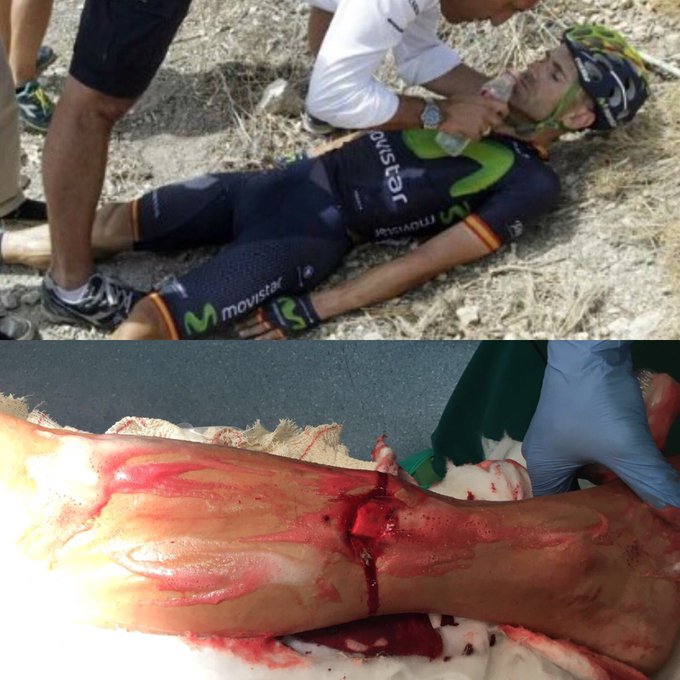José Joaquin Rojas: Warrior who rode around with deceased brother, metal pin in leg and Valverde friendship
CyclingWednesday, 22 November 2023 at 20:28
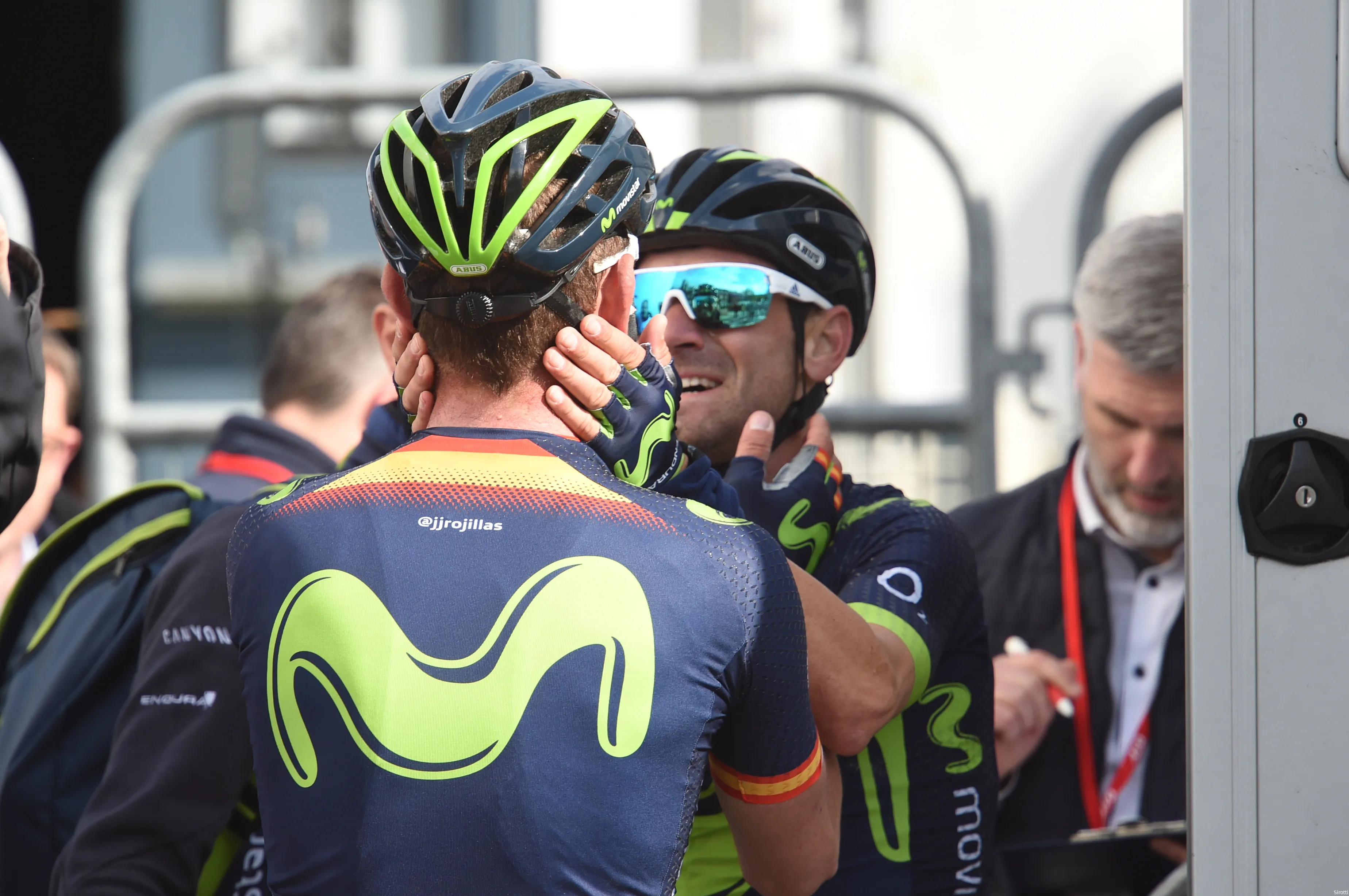
December is now lurking around the corner, which means we have just over a month left to look back on the cycling year 2023. IDLProCycling.com traditionally does this by putting the riders who will not return to the professional peloton in 2024 in the spotlight one more time, this time it's the turn of José Joaquin Rojas from Movistar.
ADVERTISEMENT
Rojas was born in June 1985 in Cieza, a place known for its peach trees. Cieza is located about forty kilometers northwest of Murcia, the capital of the Spanish province of the same name. In his youth, it became apparent that he was destined for cycling, especially due to his brother Mariano, who was twelve years older. While young José was making his first meters on the steel steed, Mariano made a name for himself as a great talent in the Indurain era.
Mariano turned professional at the tender age of twenty in 1994 with the major ONCE team, where he also made his debut in the Tour de France in 1995 as the youngest participant in that edition. The Spanish team clearly saw potential in the young Rojas, who alongside the likes of Laurent Jalabert, Erik Breukink, Johan Bruyneel, Melchor Mauri, and Alex Zülle, started strong in the Tour. However, a clavicle fracture following a fall in the descent of the Tourmalet ultimately led to his withdrawal, while at the time he seemed on track to secure the white jersey in Paris.
ADVERTISEMENT
Death of brother Mariano inspired Rojas throughout his career
In 1996, Mariano resumed his path towards the Tour, but a severe traffic accident on June 21st led to a tragedy in the Rojas family. The all-rounder from ONCE succumbed to his injuries two days later, leaving behind, among others, the eleven-year-old José as his younger brother. "I was very young at the time, but I was aware of who my brother was and what he stood for. I want to continue on the path he had set because his journey was abruptly stopped. That is an extra motivation for me," José later recorded.
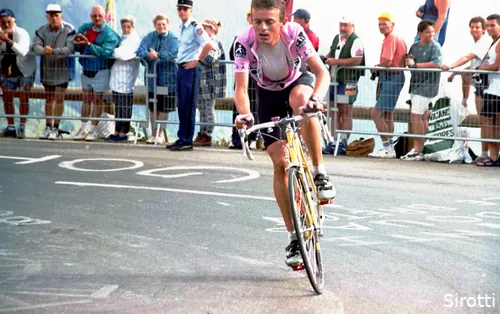
ADVERTISEMENT
Six years after the death of his brother, José first really made his mark at the Spanish championship, coincidentally. He won the junior race, and a year later in the same category, he finished fourth in the World Championships in Canada, won by the Dutchman Kai Reus. These performances attracted the interest of Manolo Saiz's Liberty Seguros, which hired Rojas as a young talent from August 2005.
He would never regret this decision, as Rojas, with his combination of good climber's legs and fast sprinter's thighs, proved to be a warrior fit for many battles. A combination that many teams today, in the hunt for WorldTour points, would pay a lot of money for. Rojas himself also loved that style of racing, especially because of his role model Laurent Jalabert. "I was a fan of him and loved his way of racing. Also, he was always the roommate of my deceased brother Mariano," said Rojas, who, however, did not want to compare himself to the successful Frenchman. "He won so many races, so that comparison cannot be made."
Due to his wide range of qualities, his teams - Rojas moved to Caisse d'Epargne, the later Movistar, in 2007 - could deploy the Spaniard in many races. For instance, he finished a respectable ninth in Gent-Wevelgem in 2007 and was already prominently present in the Flemish races in De Panne a year earlier, while the veteran, in his first Grand Tour - the Giro in 2007 - immediately rode several top ten finishes. This turned out to be the precursor to a recurring theme in the Murcian's career: places of honor.
Rojas as a versatile competitor in Tour de France and numerous other races
In 2008, he eagerly continued on this path, achieving a third place in the Tour Down Under, a seventh place in Gent-Wevelgem, and fifth places in both Plouay and Hamburg, important ProTour races. A season later, he made his first appearance in the Tour de France, where Rojas immediately managed to finish in the top ten six times. He didn't win much in these first seasons: a stage in the Tour of Murcia (2007), the Trofeo Pollenca (2008), and a stage in the Tour de l'Ain (2009) were his only victories in the period from 2005 to 2010.
ADVERTISEMENT
Anyone who included Rojas in their Tour de France pool team in those years invariably had a valuable asset. Take 2010, for example, the year when the Spaniard finished in the top ten in 12 of the 21 stages. He eagerly repeated this feat a year later, with six top-five finishes and a second place in the points classification. But Rojas also made his presence felt in tough races like the Tour of Catalonia: in seven stages there, he also finished in the top five six times, including a victory. Eventually, that year, the Spaniard would finish as number thirteen in the global ranking and as Spanish champion.
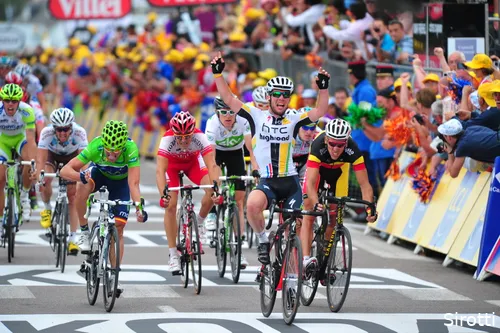
From 2011, Rojas' team operated as Movistar, where, at the beginning of 2012, Alejandro Valverde returned from a suspension. The regional colleague led to a turning point in the career of the fast rider, who increasingly focused on providing support for Valverde. Rojas still pursued individual success in certain races, but after several crashes, he gradually moved away from mass sprinting.
This shift was logical, as his climbing abilities improved. In 2014, he managed to finish fourth in the general classification of Paris-Nice, just a few weeks after a wrist fracture in the Tour Down Under. He left sprinting for 'heavier' stages in races like Switzerland, Catalonia, and the Basque Country. In that year's Tour, he was disqualified in the eighteenth stage for repeatedly drafting behind a car.
Rojas demonstrates the toughness of cyclists with photos of legs after crashes and tough races
ADVERTISEMENT
After the end of 2015, Rojas was diagnosed with Wolff-Parkinson-White syndrome, but following a successful heart surgery, he was able to cycle again normally in 2016. Winning another Spanish title, his last victory as a professional to this day, he headed to the Vuelta with high hopes. There, he was one of the key players in Nairo Quintana's overall victory, though Rojas did not celebrate in Madrid. On the penultimate day, he crashed into a guardrail, suffering a horrific injury: an open fracture of the shin and calf bones. The images he shared on social media of this injury are not for the faint-hearted.
In 2017, despite having a massive metal pin in his leg, Rojas was back 'normally', achieving a fifth place in the Amstel Gold Race and a 22nd place in the same year's Vuelta. After the heart problems and the severe crash, sprinting became a thing of the past for Rojas, who increasingly focused on the role of road captain. He preferred to participate in grand tours, of which he started riding two per year. In 2019, he again made international headlines by showing his legs on social media after three weeks in the Giro.
After his friend Valverde, who in 2021, following a serious fall in the Vuelta, was literally and figuratively supported by Rojas, retired in 2022 after a long, successful career, Rojas and his generation peer Imanol Erviti remained as the culture keepers of Eusebio Unzué's Spanish armada. Erviti announced early on that he would end his career after 2023, but Rojas took a little longer to decide. In mid-October, he finally announced that it was definitively over, to which his lifelong friend Valverde responded: "Welcome to the other side, friend."
However, this 'other side' is relative: while Valverde still chases victories in the professional gravel circuit, Rojas quickly announced that he would be stepping into the team management car of Movistar. His active career ends without grand tour victories, which is almost miraculous: the tough warrior from Murcia retires as the active rider who finished in the top ten most often in a grand tour (54 times) and the Tour de France (34 times) without winning a single stage.
IDL-productions
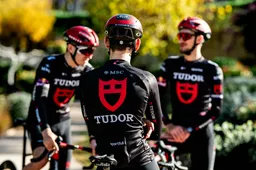
Visma | Lease a Bike and UAE Emirates-XRG who? Tudor unveils ultra-modern HQ and leaders' schedules
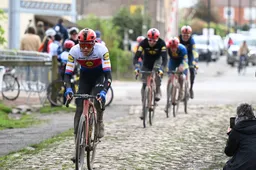
Last year, he was spot on: Lidl-Trek team leader De Jongh names his spring surprise for 2026
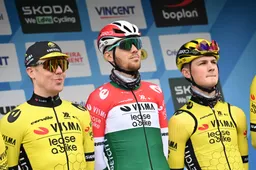
Attila Valter on why he left Visma | Lease a Bike: 'If it is what it is after three years, its not going to change'
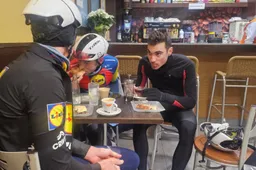
Still in black, but soon in colorful Lidl-Trek jersey: Juan Ayuso praises new environment
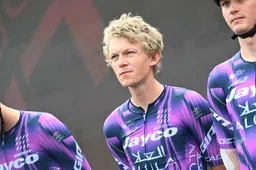
Bouwman not afraid to change at 32 after first disaster year outside of Visma: 'Have to be honest with myself'
Latest Cycling News
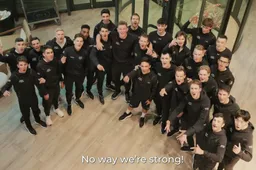
🎥 Astana’s hilarious new season video rap — Vinokourov and riders bring the laughs again
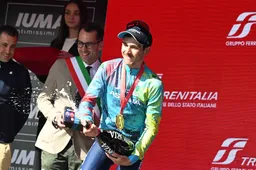
No one embodied Astana metamorphosis better than Scaroni, who is aiming higher than ever in 2026
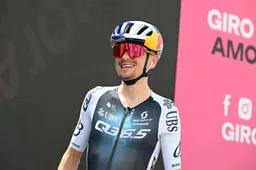
Why Tom Pidcock doesn't take his teammates to the Teide or Sierra Nevada, but at 2,700 meters in Chile
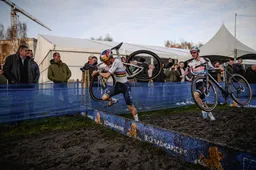
Pidcock keeps focus on road cycling, but cross country in 2026 is a possibility - albeit with a condition

Visma | Lease a Bike and UAE Emirates-XRG who? Tudor unveils ultra-modern HQ and leaders' schedules
Popular Cycling News

🎥 Pogacar already focused on Milano–Sanremo: World Champion goes all-out on the Poggio
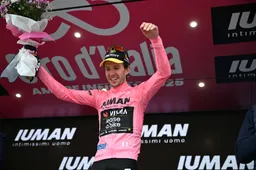
Big surprise: Simon Yates (33) puts an immediate end to his career
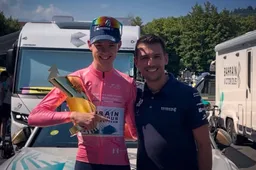
A winner in the Giro and Roubaix: are comparisons between Jakob Omrzel and Tadej Pogacar justified? 'More of a climber'

Why Tom Pidcock doesn't take his teammates to the Teide or Sierra Nevada, but at 2,700 meters in Chile
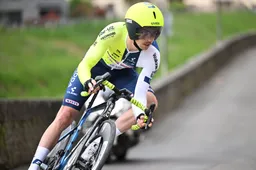
After Gee's transfer announcement, NSN Cycling Team presents two new reinforcements, including trusted Girmay-helper
Latest Comments
- Those events are mental rest for him. Fun, without expectations. *Sagan lost his abilities because he gained weight and got lazy. Pogi will likely retire before that has a chance at happening.Veganpotter14-12-2025
- Ah, the consequences of riding for Israel.Veganpotter11-12-2025
- Pidcock could follow everyone but Pogi while finishing 3rd. No second place rider this season😃Veganpotter16-11-2025
- Now the Palestinian protestors can stop their whining. Trump came to the rescue. So they can now STFU and go back to waving the rainbow flags.raufus15-10-2025
- Cracked the code lol. If it was that easy to 'crack the code' jonny Vegas would be charging up the Kwaremont giving Pog a dose of his medicine. Evenepoel can't match pog on a climb and neither can mvdp. Anything with a half difficult climb and Pog smashes the field. Even on flat(ish)parcours like Roubaix it came down to a mistake and crash by pog to definitively crown mvdp. MSR is the only one that Pog probably won't win.kevpt10-10-2025
- We've seen this movie before. I think Pogacar is doping.DeadBlow10-10-2025
- 👍Bea08-10-2025
- 👌🏻Bea08-10-2025
- What the data doesn't show is how much of an effect drafting had for evenepoel. Pogacar went with del toro at 100km whilst Evenepoel was still in the bunch. Despite the bike changes he still had a lot of assistance getting back to the bunch. Pogacar then rode 60km solo whilst evenepoel rode with Healy/Skjelmose until going solo in thd last 10-15km. Thats ~20% less power / energy requirements for 45-50km. Apples and oranges...kevpt30-09-2025
- 👏👏Bea24-09-2025
Loading
